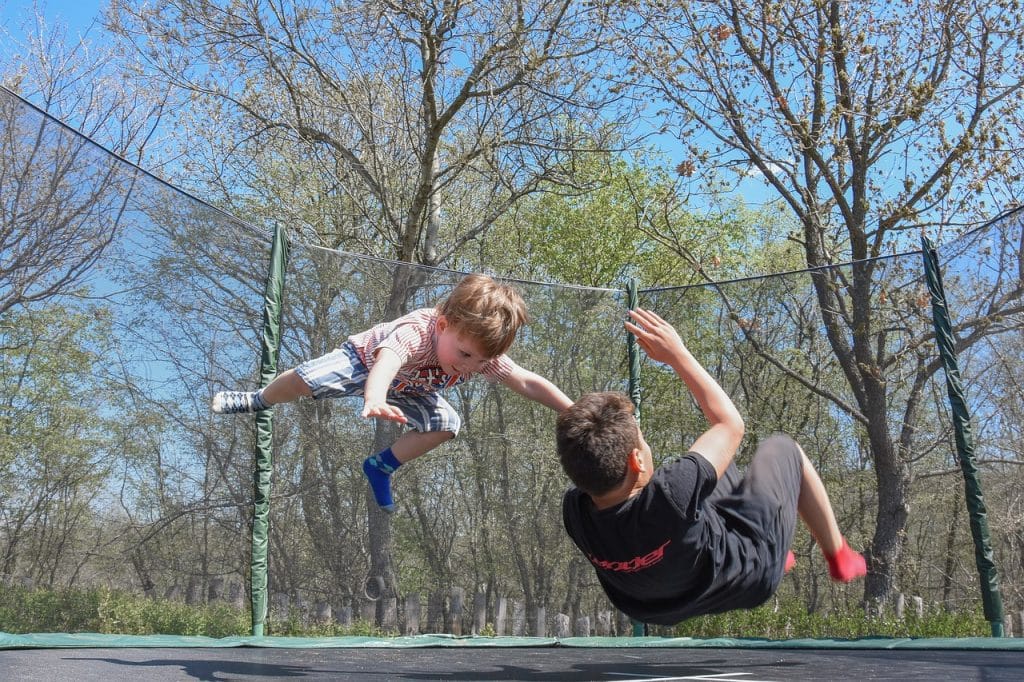In an exciting breakthrough, researchers have identified the key noticeable signs of ADHD that parents should watch out for in their children. This groundbreaking discovery promises to revolutionize the way we detect and address this neurodivergent condition, which affects a staggering 1 in 10 kids worldwide. By equipping parents with the knowledge to recognize subtle behavioral quirks as potential indicators of ADHD, experts aim to empower families to provide timely support and ensure their children thrive. As the details of these telltale signs are unveiled, a new era of early intervention and tailored care for neurodivergent kids beckons, leaving parents eagerly awaiting this game-changing revelation.
Table of Contents
Understanding ADHD: A Quick Overview
Before we dive into the signs, let’s take a moment to understand ADHD itself. Attention Deficit Hyperactivity Disorder (ADHD), a common neurodevelopmental disorder affecting a person’s ability to pay attention, control impulsivity, and regulate their energy levels. It’s crucial to note that ADHD presents differently in every child, and there are three primary types: predominantly inattentive, predominantly hyperactive-impulsive, and combined type.
So, what does this mean for your child? Each type of ADHD comes with its own set of challenges and characteristics. To help you better understand the needs of your child, we’ll break down the common signs of each type in the following sections.
Spotting the Signs: Inattentiveness
Children with predominantly inattentive ADHD may struggle to focus on tasks or conversations, often getting lost in their own thoughts. This can make it difficult for them to stay on track and complete tasks efficiently. Here are some common indicators of inattentive ADHD:
- Difficulty staying on task, easily distracted by unrelated thoughts or external stimuli
- Forgetfulness in daily activities, such as misplacing belongings or losing track of instructions
- Struggling to organize tasks and prioritize responsibilities
- Avoidance of tasks that require sustained mental effort

Read more: Can Children With ADHD Mask Their Behavior?
It’s important to remember that occasional forgetfulness or daydreaming is normal for any child. However, if these behaviors persist and negatively impact your child’s daily life, it may be a sign of inattentive ADHD.
Spotting the Signs: Hyperactivity and Impulsivity
If your child has predominantly hyperactive-impulsive ADHD or the combined type, they may exhibit a constant need for movement and struggle with self-control. This can be challenging not only for them, but also for you and their teachers. Keep an eye out for these signs:
- Excessive fidgeting, squirming, or tapping when seated
- Difficulty staying seated in situations where it’s expected, such as during class or meals
- Running or climbing inappropriately, as if driven by a motor
- Interrupting or intruding on others, difficulty waiting for their turn
Again, it’s normal for children to have bursts of energy and act impulsively from time to time. But if these behaviors become a consistent pattern and interfere with your child’s daily life, it’s worth considering the possibility of hyperactive-impulsive ADHD.
Get Your Free Printable Daily Behavior Chart!
Age Matters: Symptoms in Younger vs. Older Children
Keep in mind that ADHD symptoms can change as your child grows. Younger children may exhibit more obvious hyperactivity, while older kids might struggle more with inattention and disorganization. Always consider your child’s age when evaluating potential signs of ADHD.
For example, a preschooler with ADHD may have difficulty sitting still during storytime, while a middle schooler might struggle to keep track of assignments and stay organized.
When to Seek Professional Help
If you’ve observed multiple signs of ADHD in your child and they’re consistently interfering with their daily life, it’s time to consult a professional. Reach out to your child’s pediatrician or a mental health specialist who can evaluate your child and provide appropriate guidance and resources.
Remember, early intervention and support can make a significant difference in your child’s development and overall well-being.

Read more: Symptoms of ADHD in Children
Supporting Your Neurodivergent Child
Recognizing the signs of ADHD is just the beginning. As a parent, it’s essential to create an environment where your child feels supported and understood. Here are some strategies for fostering a positive home and school experience:
- Encourage open communication: Talk with your child about their feelings and experiences, and reassure them that it’s okay to be different.
- Establish routines: Predictable schedules can help children with ADHD manage their time and energy more effectively.
- Collaborate with teachers: Work closely with your child’s educators to create an individualized education plan (IEP) that addresses their unique needs.
- Seek support: Connect with other parents of neurodivergent kids, join local support groups, or explore online communities to share experiences and resources.
By implementing these strategies, you’ll be well on your way to creating a supportive environment for your child to grow and thrive.

Try Goally For Your Child With ADHD
Goally is an excellent option for many families that have a child with ADHD. Use game play as a points-based motivator for your kiddo with ADHD, help them learn emotional regulation skills, and watch them grow! It’s simple to set up and has an expert-informed design.
Embracing the Journey: Your Child’s Path to Success
Understanding what are noticeable signs of ADHD is a vital step in supporting your child’s development. By identifying the potential symptoms and seeking professional guidance, you can help your neurodivergent child navigate their unique journey and reach their full potential. Remember, every child is different, and your love and support are the most powerful tools in their growth and success.
This post was originally published on 05/06/2023. It was a updated on 08/11/2023.
Emily is a seasoned blog writer for Goally, leveraging her extensive background in child psychology and special education to provide valuable insights and resources for parents. Her commitment to understanding and addressing the unique needs of these children, combined with her expertise in educational strategies, makes her a credible and empathetic voice for families.





